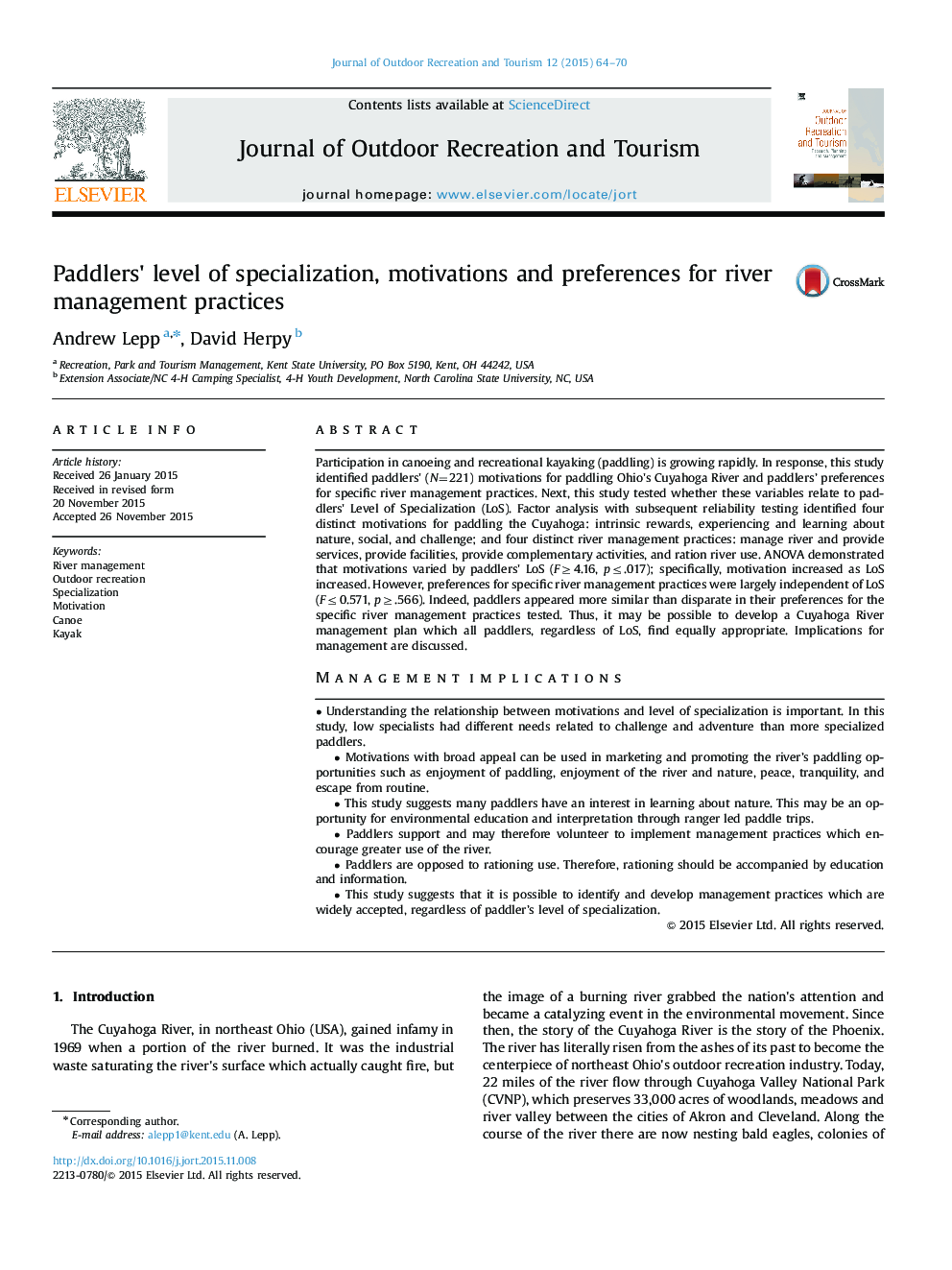| Article ID | Journal | Published Year | Pages | File Type |
|---|---|---|---|---|
| 92386 | Journal of Outdoor Recreation and Tourism | 2015 | 7 Pages |
Participation in canoeing and recreational kayaking (paddling) is growing rapidly. In response, this study identified paddlers' (N=221) motivations for paddling Ohio's Cuyahoga River and paddlers’ preferences for specific river management practices. Next, this study tested whether these variables relate to paddlers' Level of Specialization (LoS). Factor analysis with subsequent reliability testing identified four distinct motivations for paddling the Cuyahoga: intrinsic rewards, experiencing and learning about nature, social, and challenge; and four distinct river management practices: manage river and provide services, provide facilities, provide complementary activities, and ration river use. ANOVA demonstrated that motivations varied by paddlers' LoS (F≥4.16, p≤.017); specifically, motivation increased as LoS increased. However, preferences for specific river management practices were largely independent of LoS (F≤0.571, p≥.566). Indeed, paddlers appeared more similar than disparate in their preferences for the specific river management practices tested. Thus, it may be possible to develop a Cuyahoga River management plan which all paddlers, regardless of LoS, find equally appropriate. Implications for management are discussed.Management implications• Understanding the relationship between motivations and level of specialization is important. In this study, low specialists had different needs related to challenge and adventure than more specialized paddlers.• Motivations with broad appeal can be used in marketing and promoting the river’s paddling opportunities such as enjoyment of paddling, enjoyment of the river and nature, peace, tranquility, and escape from routine.• This study suggests many paddlers have an interest in learning about nature. This may be an opportunity for environmental education and interpretation through ranger led paddle trips.• Paddlers support and may therefore volunteer to implement management practices which encourage greater use of the river.• Paddlers are opposed to rationing use. Therefore, rationing should be accompanied by education and information.• This study suggests that it is possible to identify and develop management practices which are widely accepted, regardless of paddler’s level of specialization.
